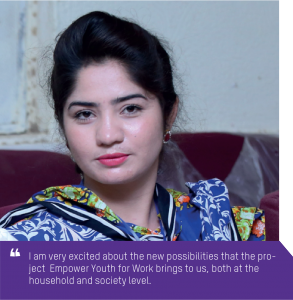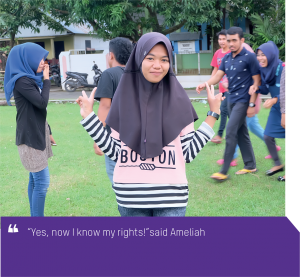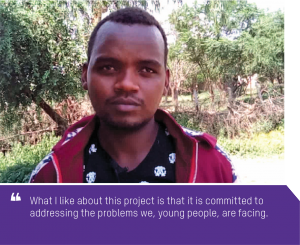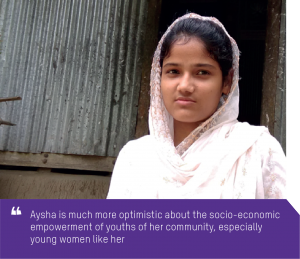Annual report year 1
We have submitted the first annual report, and we would like to update you on the Empower Youth for Work project. What have we done so far, what is new and innovative, what did we learn and what are the key results.
What have we done so far
The project started on July 1st 2016, with the global programme management unit (PMU) in place. The countries first finalised recruitment and organised inception workshops, held from August to October. During this time countries and the PMU worked to improve the work plans, MEAL frameworks and influencing strategies while enhancing strategic alliances with government, private sector and communities. With the finalised work plans signed off by IKEA Foundation, the focus was on learning, capacity building (including training on project management, finances, influencing, gender, and promoting innovation) and the on-going baseline research. Further market analysis was conducted, along with research on how youth can be influencers, and a global scoping study of innovative ways to have successful rural hubs that can improve young women’s livelihoods in hard-to-reach areas. The first year finished with youth groups being formed in communities, government and private sector alliances secured, and influencing strategies in place.
What is new and innovative

This project has high ambitions to foster and enhance innovations. In April 2017 we hosted, in The Hague, a training with the PMU and the project leaders from the four countries on how to promote innovation and how to track and learn from the innovative components in the project. To support countries to put the principles from the training into practice, each country was assigned an innovation coach to provide distance coaching to three key stakeholders for selected pilots.
To learn from other innovations, with co-funding from Oxfam’s internal innovation fund we used a methodology called E-motive to conduct a global scan of innovative projects that focus on improving entrepreneurship for young women in rural areas in the global south. The scan produced over 60 cases, which we narrowed down to 15 profiles of successful rural hubs that are relevant for Pakistan and Bangladesh. Representatives from these countries will, in the second year, travel to - respectively - Nepal and India to understand how innovative projects identified there have been organised and remained sustainable. Each country is closely testing the pilots and innovations they start. For example, Pakistan is testing different lobbying strategies for businesses to adopt pro-youth and pro-gender work environments; Ethiopia is testing the use of mobile trucks to provide business services to young people.
What did we learn
In the past year, we conducted a review to collect lessons on how young people can influence public policies related to economic empowerment. The findings include strategies that can be used in Oxfam’s advocacy work. Lessons were shared during a webinar with staff across the Oxfam confederation. We also are collaborating with a youth-led research institute, Youth Policy Labs, to develop a youth-friendly manual on this topic.
Key results.
In all 4 countries
- Inception workshops.
- Revision of project design and MEAL framework
- Partner selection and staff recruitment
Ethiopia:
- Start-up workshops in all targeted areas
- Capacity building with partners and staff includingworkshops on influencing and innovation
- Government buy-in for collaborative processes, including commitment of some families and government officials to provide land for business start-ups and job creation
- Market assessment
- Commitment from the Oromia Saving and Credit Share Company (OCSSCO) and Somali Region Micro Finance Institutions
- For the guarantee scheme, a draft Memorandum of Understanding among Oxfam, Rift Valley Children and Women Development Organization (RCWDO) and OCSSCO has been shared for inputs
- Private sector collaboration has been developed with Berwako Dairy Processing Plant and Jigjiga Slaughtering Service
- The establishment of the Youth Advisory Board
Pakistan
- Start-up workshops in all targeted areas
- Capacity building with partners and staff including finance, project management, The Gender Action Learning System (GALS) and influencing
Indonesia
- Start-up workshops in all targeted areas in South Sulawesi with local officials, youth representatives and civil society
- GALS workshop implemented with 24 young people (18 women, 6 men), eight community leaders, local authorities, Oxfam and partners
- Tools tested and first phase of the pilot started
Bangladesh:
- Capacity building: foundation training, finance training, MEAL training, programme management training
- Four events to launch projects in Upazilas (Sub-district)
- Household surveys to identify young men and womento be part of the project
- Formation of 132 ward-level youth groups bringing together 2,121 young women and 929 young men with a common interest in gaining knowledge, skills and space to become leaders and bring positive change to their communities
- Strategic partnerships formed with government, civil society, private sector and financial institutions.



